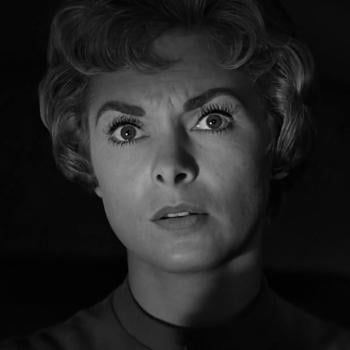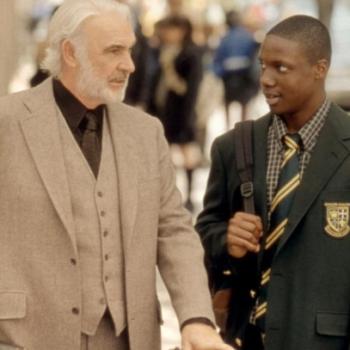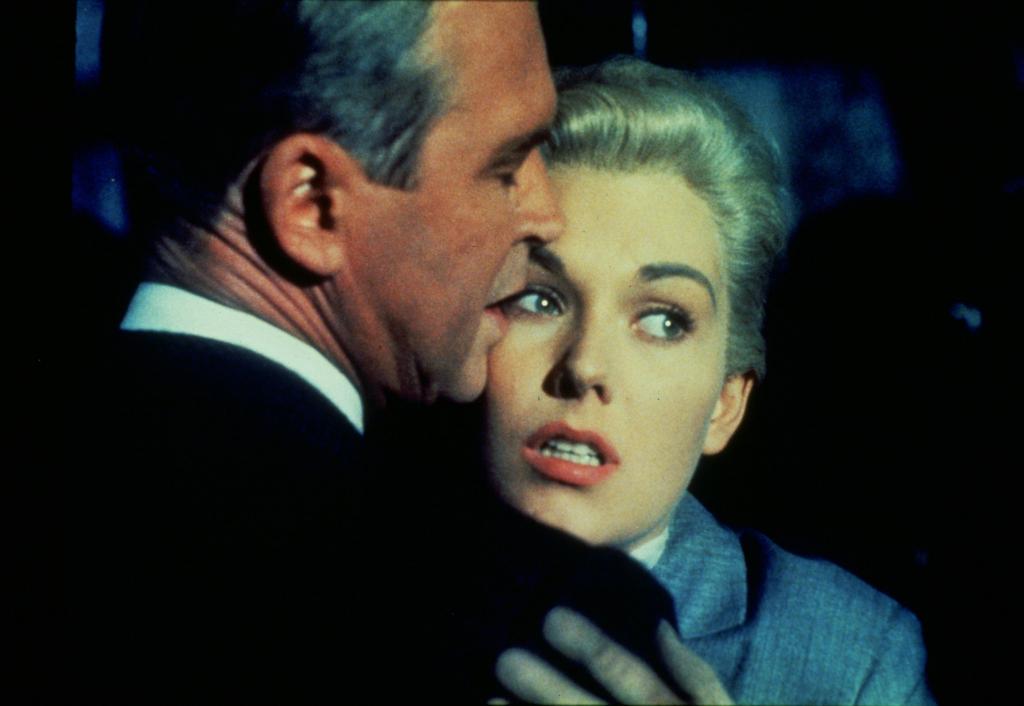
And now presenting, the one movie in which James Stewart is the guy you DON’T want to emulate.
In terms of films you don’t want spoiled before a first viewing, “Vertigo” is a little ahead of “Charade” and a few steps below “Arrival.” Proceed with caution.
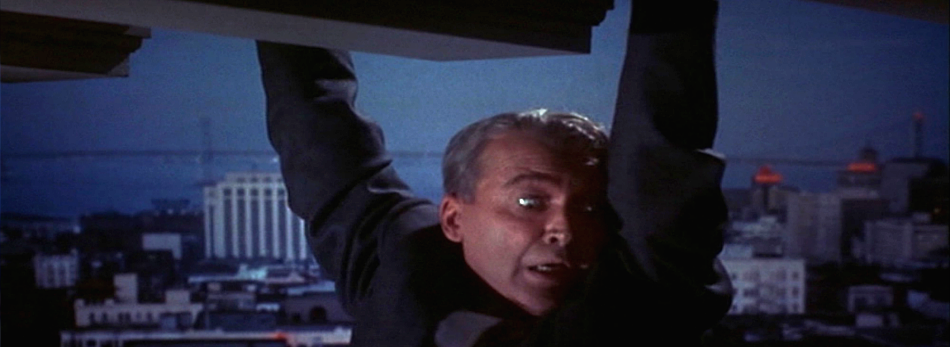
The film follows a private investigator, “Scottie,” who is traumatized after his acrophobia costs the life of his colleague. Scottie’s old coworker offers him easy work: observe his wife, the hauntingly beautiful Madeleine, to discover the cause of her unusual behavior. Indeed, Scottie becomes preoccupied with every mysterious step she makes. Where she goes and why, and what her connection is to the woman in the painting she stares at for hours on end.
When Scottie and Madeleine come face to face, her intrigue enraptures Scottie, and they are caught up in a passionate affair. But like a dream, she evaporates from Scottie’s life when in a fit of hysteria she appears to throw herself from a belltower.
Months later, Scottie comes across Judy, a woman who mirrors Madeleine to exacting detail. Scottie pursues Judy romantically, hoping to find Madeleine somewhere in her. Little does Scottie know, “Madeleine” was merely a role Judy played to stage the death of some other woman. Judy permits Scottie to court her in hopes that he might learn to love her as “Judy,” but Scottie only has eyes for a ghost. And so Judy allows Scottie to make her over into his fantasy girl.
Scottie learns the truth and forces Judy to return to the sight of Madeleine’s “death.” Judy confesses that Madeleine was never real and begs Scottie to take her as she is, but Scottie’s heart belongs to Madeleine. When Judy is spooked, she falls from the tower, and Scottie watches helplessly as Judy meets the same fate as his beloved Madeleine.
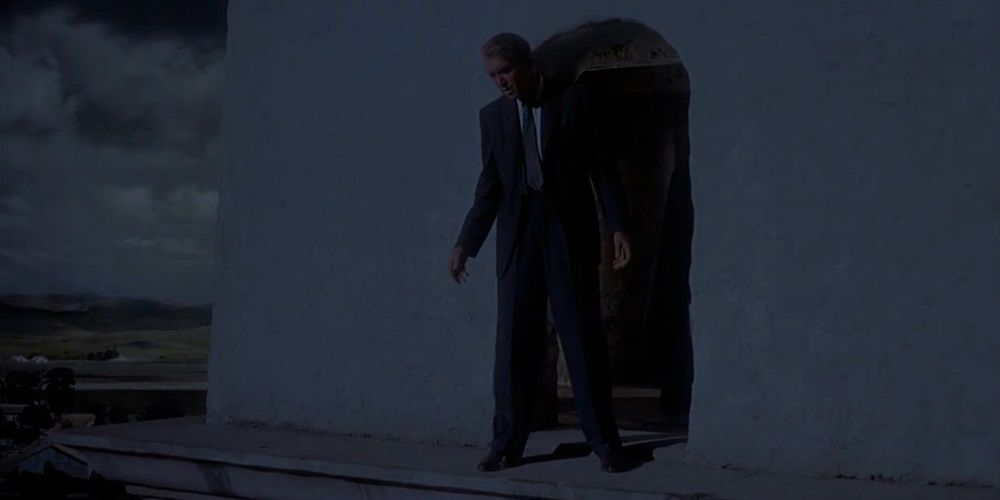
The film plays like a cautionary tale of betraying one’s moral compass in pursuit of some warped, gratifying image. What begins as simple curiosity, or even just “doing his job,” mutates into something twisted. Scottie wouldn’t be the first man to chase an imprint of a woman over someone with whom he could have had a meaningful (or at least healthy) relationship. Madeleine was a fantasy. There was only ever Judy. By following his lust, he not only comes up empty-handed, but he also becomes complicit in a woman’s death.
But there’s more than just carnal hunger at work with Scottie’s behavior. He has invented this fantasy woman and taken complete ownership over her.

Admittedly, casting this tale as one of lust does unfairly cast Judy as a Jezebel. Yes, she’s deliberately using her allure to make him complicit in a murder, but the moment she starts displaying her true self is the moment she starts being abused. Scottie’s loving embrace becomes a python’s constriction as he starts to control her appearance and behavior in the name of love. She’s chasing the possibility of real love with Scottie, but he’s only chasing a fantasy.
Could Judy and Scottie have had a normal relationship? Possibly. At the very least, Judy wouldn’t have been sacrificed on the altar of Scottie’s obsession. There’s an element of tragedy to the fact that though Scottie’s lust creates the problem, it is ultimately Judy who pays the price.
The moral of the story: if you must be James Stewart, be James Stewart in “It’s a Wonderful Life,” not James Stewart in “Vertigo.”





